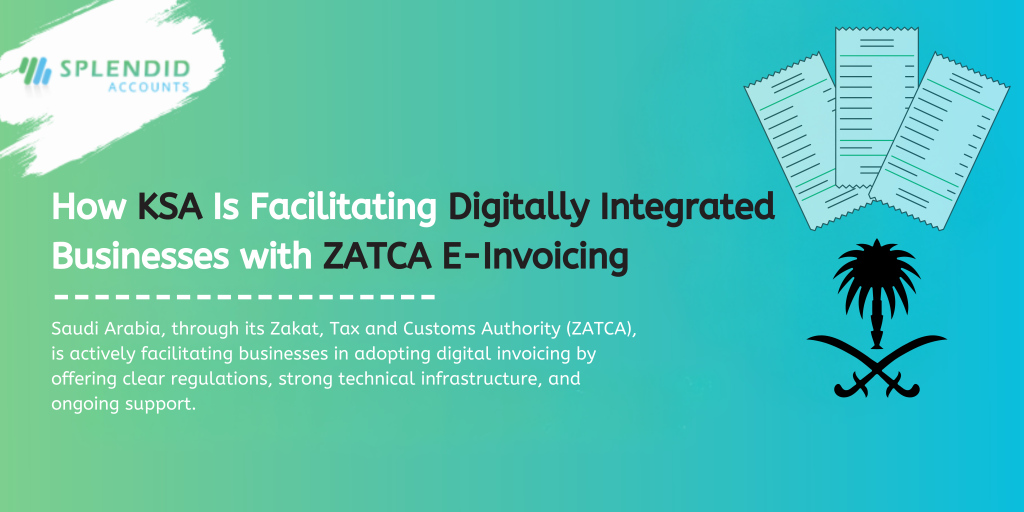
Saudi Arabia, through its Zakat, Tax and Customs Authority (ZATCA), is actively facilitating businesses in adopting digital invoicing by offering clear regulations, strong technical infrastructure, and ongoing support. Here’s how the Saudi government is enabling this digital transformation:
1. Phased Implementation for Easier Adoption
The rollout of ZATCA e-invoicing is being done in two key phases:
- Phase 1 (Generation Phase): Businesses were asked to stop using handwritten or scanned invoices and generate invoices electronically.
- Phase 2 (Integration Phase): Businesses are required to integrate their systems with ZATCA’s platform (Fatoora) for real-time invoice reporting.
This phased approach gave businesses time to adapt and reduce disruption to operations.
2. Certified Software & Integration Support
ZATCA has:
- Published clear guidelines for selecting ZATCA-compliant invoicing solutions.
- Provided a list of accredited software vendors and APIs to ensure smooth integration.
- Offered sandbox environments for testing integrations before going live.
3. Technical Documentation & Developer Resources
To make integration easier:
- ZATCA offers comprehensive API documentation, SDKs, and user manuals.
- There are regular webinars, workshops, and helpdesks to assist developers and businesses.
4. Security & Data Integrity
ZATCA enforces:
- Cryptographic controls, UUIDs, and hash functions to prevent invoice tampering.
- QR codes and XML formats for standardization and security.
These features build trust and compliance for all stakeholders, including auditors and customers.
5. No Extra Taxation, Just Better Transparency
Digital invoicing isn’t about imposing new taxes—it’s about:
- Increasing transparency in VAT collection,
- Reducing manual errors and fraud, and
- Enhancing real-time auditability for businesses.
6. Penalties for Non-Compliance Are Phased Too
Rather than penalizing immediately, ZATCA:
- Conducts awareness campaigns,
- Sends notices and reminders,
- Encourages voluntary compliance before applying strict penalties.
7. Boosting the Economy Through Digitalization
The ultimate goal:
- Strengthen the digital economy,
- Promote trust between government and private sector,
- Reduce shadow economy activities,
- And prepare Saudi businesses for Vision 2030 goals.
Final Thoughts
Saudi Arabia’s approach to ZATCA e-invoicing isn’t just about technology—it’s about enabling businesses to grow with digital tools while ensuring compliance and fairness in taxation. The government is actively building a collaborative ecosystem where software providers, accountants, and businesses can thrive together.
